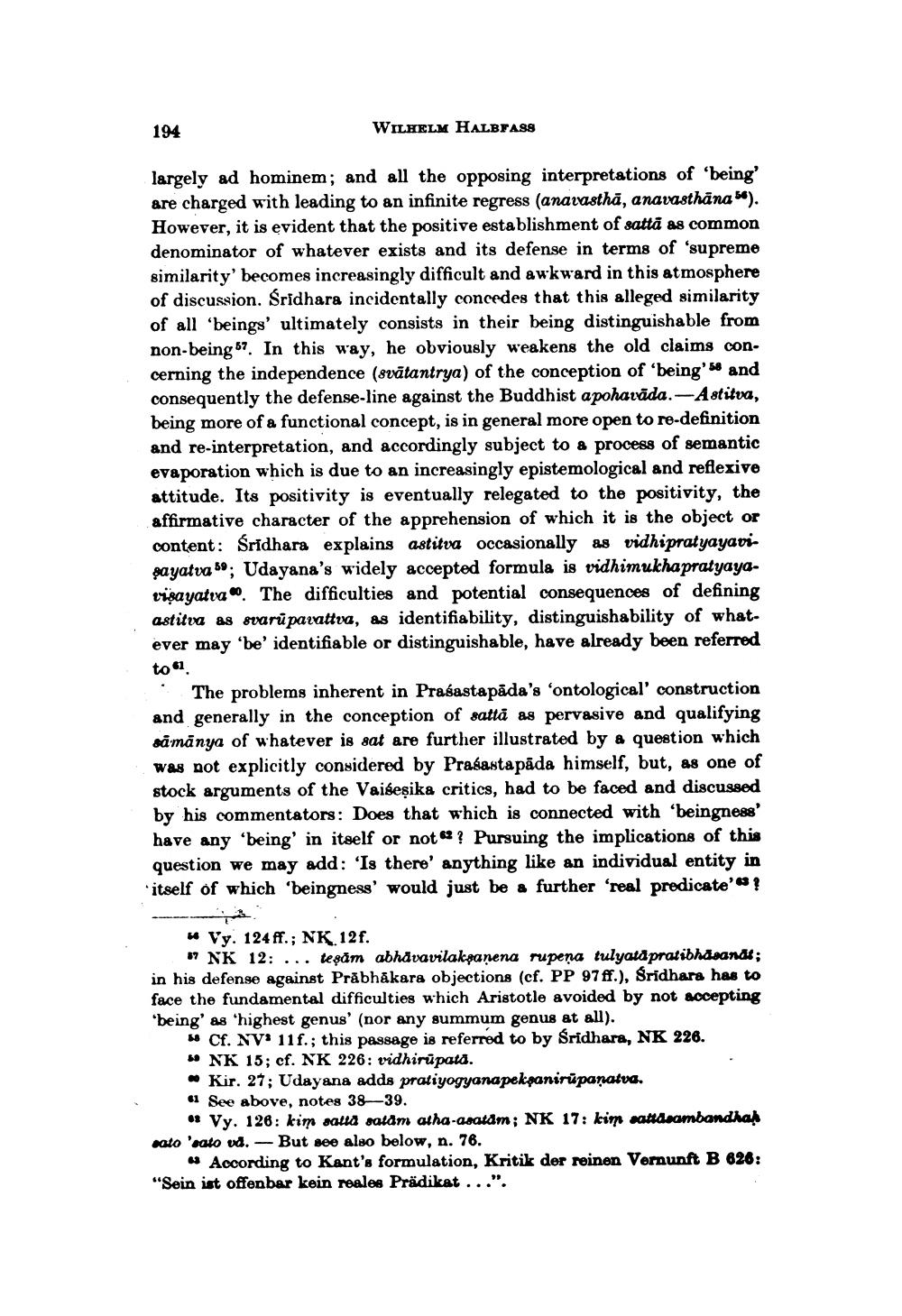________________
194
WILHELM HALBFASS
largely ad hominem; and all the opposing interpretations of 'being' are charged with leading to an infinite regress (anarastha, anavasthana 5). However, it is evident that the positive establishment of satta as common denominator of whatever exists and its defense in terms of 'supreme similarity' becomes increasingly difficult and awkward in this atmosphere of discussion. Sridhara incidentally concedes that this alleged similarity of all 'beings' ultimately consists in their being distinguishable from non-being 57. In this way, he obviously weakens the old claims concerning the independence (svātantrya) of the conception of being' 58 and consequently the defense-line against the Buddhist apohavāda.-Astitva, being more of a functional concept, is in general more open to re-definition and re-interpretation, and accordingly subject to a process of semantic evaporation which is due to an increasingly epistemological and reflexive attitude. Its positivity is eventually relegated to the positivity, the affirmative character of the apprehension of which it is the object or content: Sridhara explains astitva occasionally as vidhi pratyayavisayatva 5o; Udayana's widely accepted formula is vidhimukhapratyayavisayatva. The difficulties and potential consequences of defining astitva as svarüparattve, as identifiability, distinguishability of what. ever may 'be' identifiable or distinguishable, have already been referred to - The problems inherent in Prasastapāda’s ‘ontological construction and generally in the conception of sattā as pervasive and qualifying sā mānya of whatever is sat are further illustrated by a question which was not explicitly considered by Prasastapāda himself, but, as one of stock arguments of the Vaiseșika critics, had to be faced and discussed by his commentators: Does that which is connected with 'beingness' have any 'being' in itself or not? Pursuing the implications of this question we may add: 'Is there' anything like an individual entity in itself of which 'beingness' would just be a further 'real predicate'?
u Vy. 124 ff.; NK 12f.
17 NK 12: ... teşam abhavavilaksanena rupena tulyatá pratibha.sands; in his defense against Prăbhākara objections (cf. PP 97ff.), Sridhara has to face the fundamental difficulties which Aristotle avoided by not accepting 'being' as 'highest genus' (nor any summum genus at all).
56 Cf. NV 11f.; this passage is referred to by Sridhara, NK 226. * NK 15; cf. NK 226: vidhirupats. • Kir. 27; Udayana adds pratiyogyanapekpanirūpaņatva. " See above, notes 38-39.
* Vy. 126: kim sala saldm atha-asatam; NK 17: kim sattdsambandhan mato 'sato vd. - But see also below, n. 76.
According to Kant's formulation, Kritik der reinen Vernunft B 626: "Sein ist offenbar kein reales Prädikat ...".




